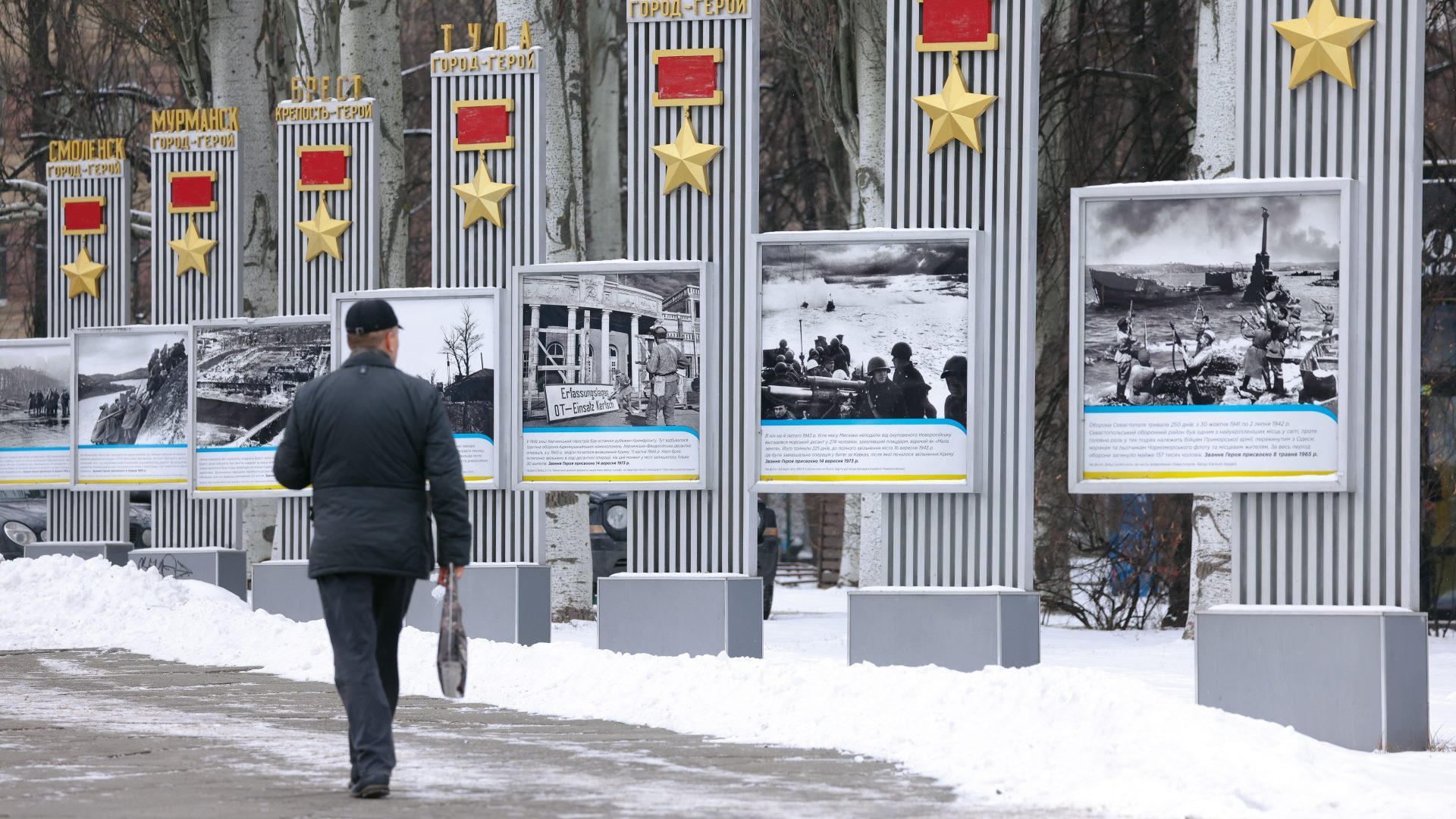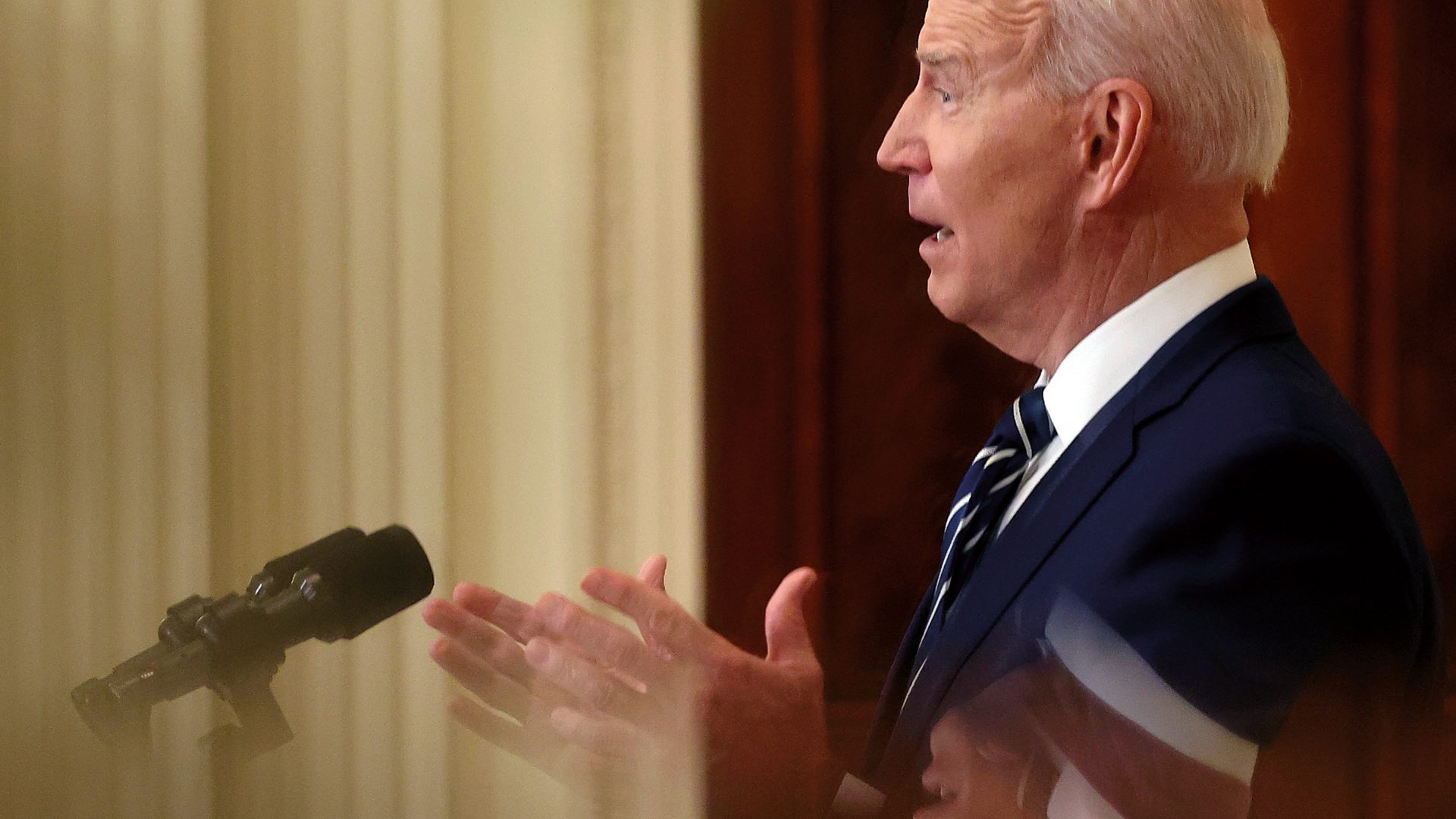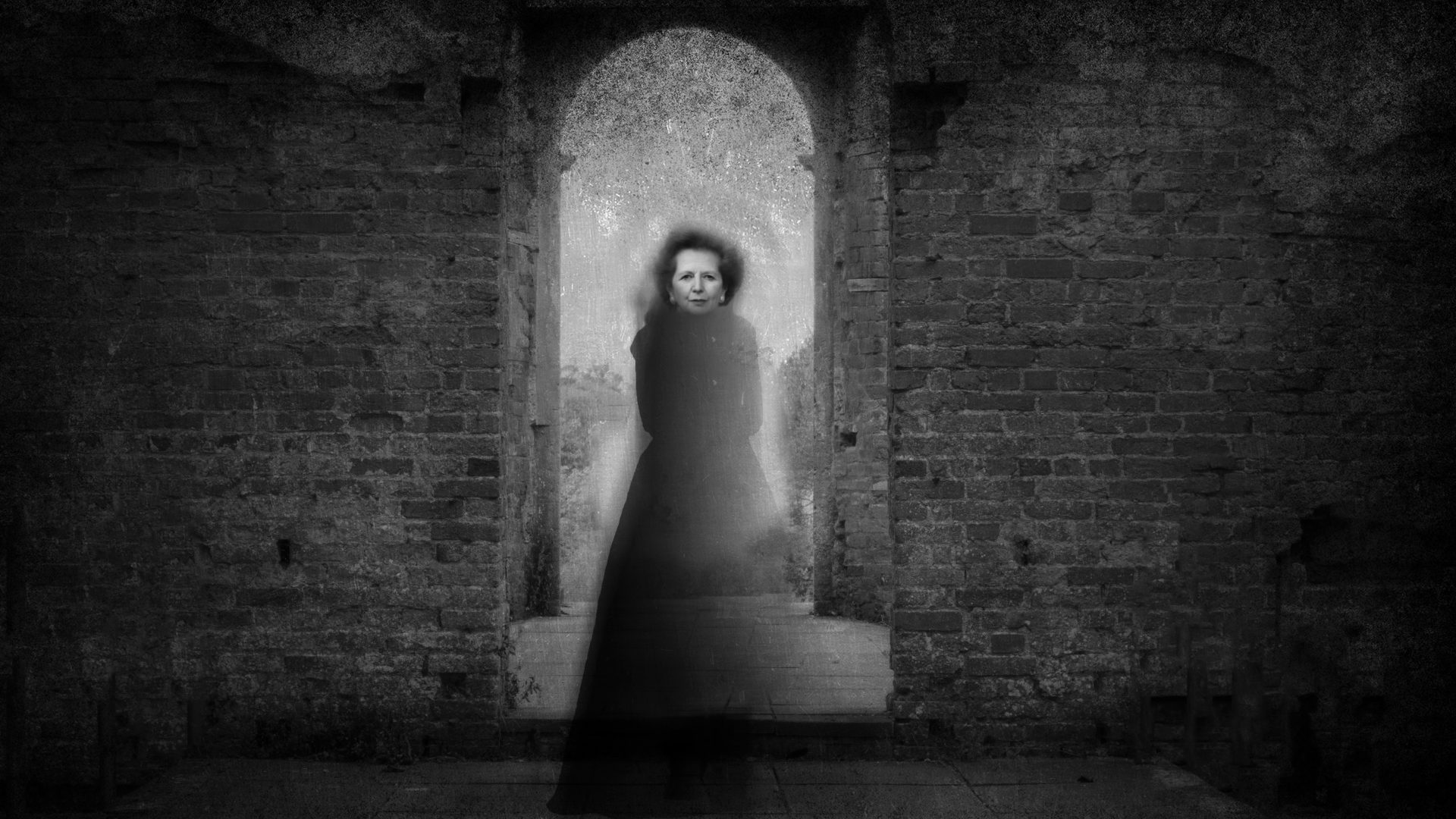I’m sitting in La Fabrique, a cafe in the centre of Kiev, near Lviv Square. There are fewer customers than usual, but most of them are speaking French.
Despite the threat of war, it seems that foreign citizens are in no hurry to leave Ukraine.
During the years of independence, a good many foreigners settled in Ukraine: from Turkish businessmen to French restaurateurs and winemakers, even a Scottish pig farmer. They like it here. Many of them have married Ukrainian women and had children. I am not sure that in the event of Russian aggression, these people will take up weapons and defend their businesses and their new country of residence, but I also do not think that they will drop everything and run back to their homelands.
Those whom I know personally do not believe that a new war will look anything like the second world war, that a new Ukrainian Stalingrad battle is possible. “No, it will be a hybrid war, cyber-attacks, blackmail, intimidation, like in Georgia in 2008,” an Austrian friend told me.
And I often think about what happened in Crimea after its annexation by Russia in 2014. The fact that only a small part of the Ukrainian military, judges, prosecutors and other government employees moved to mainland Ukraine and continued to serve it. Most of them remained in Crimea, took Russian citizenship, and started to serve the country that took the peninsula from Ukraine.
Many of my friends sold their Crimean dachas, apartments and businesses. But many did not sell. Instead, they re-registered their property according to Russian legislation and now pay real estate and business taxes to Russia.
They go there when the pandemic allows – crossing via the so-called “administrative border” between Ukraine and annexed Crimea, both Russian and Ukrainian border guards allow them to pass without problems. Even the family of President Zelensky has an apartment in Yalta registered in the name of his wife, Elena. And they also re-registered it according to Russian legislation, and they pay real estate taxes to Russia, and regularly pay utility bills, all of which the Russian media are happy to report. It is clear, though, that the family of the Ukrainian president have not visited their Crimean apartment for a long time.
My friend Victor, who had a large IT business before he retired, has a luxurious house and a small winery in Crimea. His wife is a Russian citizen, so it was easier for him. They just re-registered the house in his wife’s name. The war with Russia and the ongoing political conflict have become a constant with which many have learned to live, doing what they can to protect their assets.
A few more customers have come into the cafe now, and French is no longer the dominant language at the tables. Ukrainians like their coffee and many of them come in without a mask. It seems that folk here have no fear of illness or of war.
Our restaurants and theatres are full and there is a choice of pop concerts to attend, some of them with Russian stars who may not even make it through Ukrainian passport control because they have been blacklisted for giving concerts in annexed Crimea or in the separatist territories. Russian pop stars really love Ukrainian audiences and some of them are very popular here, in spite of everything.
Putin likes to say that Russians and Ukrainians are one people. And this always causes a wave of indignation among Ukrainians. This time he seems to have decided to prove that Russians and Ukrainians are one people with the help of tanks and ballistic missiles, with the help of the threat of war.
Although it is true that we lived for centuries in the same Russian empire, everything Putin has done lately is actually further widening the gap between Russians and Ukrainians.
In fact, there is a huge mental difference between Ukrainians and Russians. At the heart of the Ukrainian mentality lies the matrix of anarchy. It was created and consolidated by the Ukrainian Cossacks in the 16th and 17th centuries. It was they who created a vast independent territory on the site of present-day Ukraine and controlled its borders, constantly entering into military conflicts either with the Poles, or with the Russians, or with the Crimean Tatars.
Sometimes they joined forces with the Crimean Tatars to fight the Poles. Sometimes they joined the Poles to fight the Russians, but for almost three centuries they were the masters of their territory, democratically elected their military leaders, known as Hetman.
They organized a system of military courts and a diplomatic service. The only thing they didn’t do was create their own currency. They used Polish, Lithuanian and Turkish silver and gold. This is probably why, after the collapse of the Soviet Union, Ukrainians so easily switched to dollars and German marks, which became the main currencies during the post-Soviet economic crisis.
Ukrainians have always valued freedom and independence. They have always been individualists. Even under Soviet rule, they were the most ardent opponents of collectivisation and refused to join the collective farms.
That is why about 300,000 Ukrainian farmers were deported to Siberia in the late 1920s and that is why Stalin punished Ukraine with two artificial famines – in 1932-33 and in 1947.
The best proof of the individualism and anarchism of today’s Ukrainians is the fact that more than 370 political parties are registered with the Ministry of Justice. It is easier for a Ukrainian to create his own political party than to join an existing one. If a Ukrainian gets tired of the party he created, he can easily sell it to another Ukrainian who wants to take part in local elections, but who is too lazy to create a new own party or is reluctant to join an existing one.
And since the time of the Cossacks, Ukrainians do not like their own leaders and do not really respect their own laws. And even if the new president is elected by an overwhelming majority, within a month some of those who voted for him will certainly begin to find fault and to actively dislike the leader.
The Russian mentality, on the other hand, is built on the matrix of the monarchy. In Russia, they love, even adore their Tsar. Sometimes, however, they kill him and adore the next one.
Russians are representatives of a collective mentality. I am telling you this as an ethnic Russian who became politically Ukrainian many years ago under the influence of the independent Ukrainian spirit. Russians like to do something all together, as an army or as a nation. Now, all together, they hate the US and Nato and oppose homosexuality and European values.
This does not mean that there are no dissidents among them. But even dissidents will usually support the Kremlin’s policies and avoid answering questions such as, “Who does Crimea belong to?” The conflict between these two mentalities could not but escalate and, probably, could not but lead to the threat of war that we have today.
And all because, once the USSR collapsed, the ancient matrix of Cossack anarchy began to displace the short-lived matrix of Soviet collectivism. This was most clearly manifested in 2014, when the war in Donbas began. By that time, the Ukrainian army practically did not exist, and just like ancient Cossacks, volunteers from all regions of Ukraine rushed to defend Ukrainian territory against pro-Russia separatists from Donbas, who had been joined by Russian volunteers and military personnel. Most of the volunteers came from two regions: western Ukraine and from the Russian-speaking Dnipropetrovsk region in the south of the country.
So it is not a war between Ukrainianspeakers and Russian-speakers, as Putin loves to repeat. It is a war between two different mentalities: the collective imperial and the freedom-loving individualistic and anarchic. Ukrainians value freedom more than stability. The Russians, on the contrary, are ready to give up freedom for the sake of stability.
The threat of war from Russia only means that the Kremlin has realised it is finally losing Ukraine. For Russia, Ukraine is the foundation of the Russian Empire. After all, Ukraine is the heiress of Kievan Rus. Kiev is more than 1,500 years old, while Moscow is “only” 875 years old.
When Kiev adopted Christianity in 988, Moscow and the Muscovite kingdom did not even exist. The founder of Moscow, Yuri Dolgoruky, was a prince of Kiev and was buried in Kiev. So, historically, Kiev founded Moscow, and therefore it is impossible for Moscow to imagine its empire without Kiev and Ukraine.
And so far it is calm in Kiev, despite the new wave of Omicron and the ever-expanding stock of Russian ballistic missiles arriving in Belarus for exercises on the border with Ukraine.
Two-thirds of Ukrainians are sure there will be no war. One third is sure there will be. President Zelensky has to balance: he does not want panic, of course, but at the same time he is trying to show that the country is ready to defend itself. Parliament voted for a law on the creation of an armed territorial defence force. For reservists and volunteers, military training and medicine classes are underway. Nobody is going to capitulate to Putin. Just as no one is going to cancel their holiday to Egypt or the Dominican Republic.
Most flights from Ukrainian airports are currently to warm countries. The weather this winter is very unstable. The temperature swings dramatically: sometimes -10C, then +2C. You constantly want to warm up, and I wish spring would come.
The mayor of Kiev recently announced that the main bomb shelter in the event of bombardment would be the stations of the metro. This is in addition to 5,000 prepared bomb shelters in the basements of residential buildings and schools. Most of these shelters were built in Soviet times in case of a war with Nato – now Russia wants to fight Ukraine to prevent it from joining Nato.
The paradox here is that Nato was not going to accept Ukraine in the coming years, or maybe even decades. And Ukraine would not have been eager to join Nato if it were not for the constant threat from Russia.
Now it turns out that Russia is pushing Ukraine towards joining Nato, and it is thanks to Russia’s threats that Nato may be forced to accept Ukraine. If this happens, then this story will surely become very popular in military textbooks.
Not so long ago, big changes were made to the food fed to the revived Ukrainian army. All Ukrainians were worried and demanded that soldiers and officers be better fed. Now our soldiers get meat and fish instead of the Soviet army’s staple of barley porridge with lard. Nato countries, primarily the US and Britain, are delivering shipments of modern weapons and ammunition to Ukraine every day.
Ukrainians, meanwhile, are busy arguing about school meals – reform of which has revolutionised school food since January 1. Parents are divided into two camps. Some support healthy food at school, while others demand the return of cream cakes, chips and cola.
Food remains an important criteria for quality of life for Ukrainians. After freedom and independence, of course. Ukrainians are hardwired to value tasty and healthy food because of the famines they experienced, during which up to seven million people died. Ukrainians have been waging another war with Russia for a long time – over borscht. Borscht is a Ukrainian national dish, a soup made from beetroot, meat, cabbage and tomatoes. Russians say it is a Russian dish. But right now, the Unesco commission is considering borscht for registration as a Ukrainian intangible cultural heritage.
In the war over borscht, Ukraine is winning. Who will win in other wars between Ukraine and Russia, it is still difficult to predict.
Andrei Kurkov is the author of 19 novels, including the best-seller Death And The Penguin.



